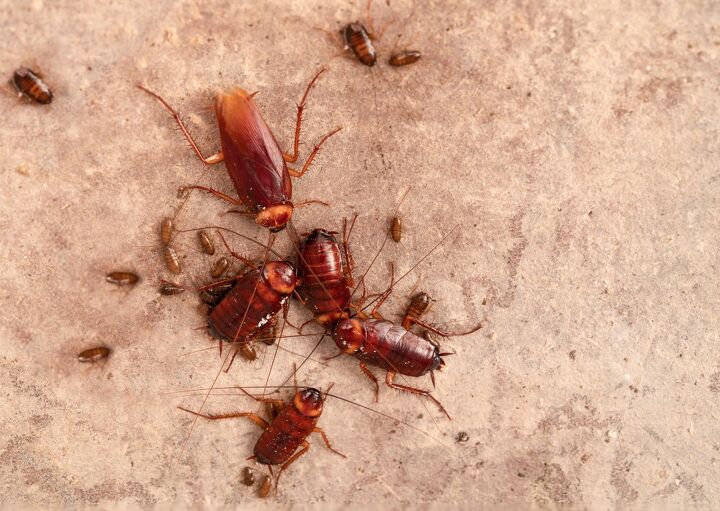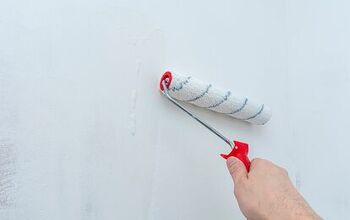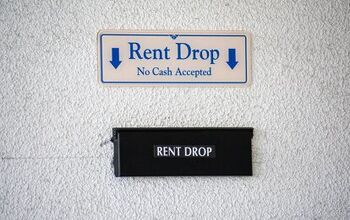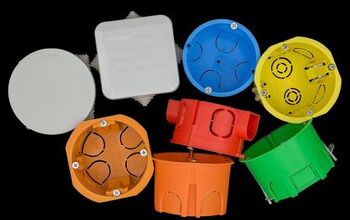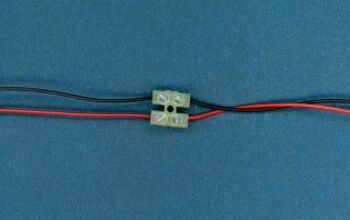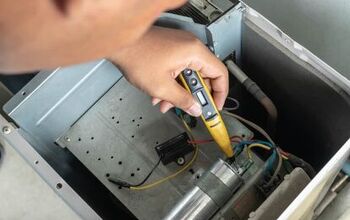Landlord Did Not Disclose Roaches? (Here's What You Can Do)

Is there anything worse than discovering cockroaches in the property you’ve just moved into? If this is the situation you’re currently experiencing, you may be wondering what your best course of action is. You’re probably also curious about whether your landlord was obligated to tell you about the roaches before you signed the lease.
Landlords do not have to tell tenants about previous infestations, but they must provide a clean and sanitary dwelling. Depending on local laws and lease terms, either the tenant or landlord may be responsible for eradicating a cockroach infestation. If you discover an infestation, tell your landlord immediately and document the situation with photos and writing.
In this article, we’ll answer all of your questions regarding cockroach infestations and who is responsible for them. We’ll talk about what constitutes an infestation and whether landlords are required to provide a roach-free property to their tenants. We’ll also cover what you need to do if you discover cockroaches on your property.
Do You Need Pest Control Services?
Get free, zero-commitment quotes from pro contractors near you.

Do Landlords Have To Disclose Cockroach Infestations?
Landlords are not obligated to disclose any infestations that have taken place in the past. However, if there is a current infestation, they are required to disclose it before a lease is signed. If you move in to find cockroaches on the property, that is something that should have been disclosed.
Something to note is that you can be held responsible for an infestation if it begins when you’re living there. Failing to wash dishes and take out the trash regularly can create the perfect environment for cockroaches. In this type of situation, it would not be the landlord’s fault that the infestation developed.
What Constitutes An Infestation?
You might wonder how many roaches constitute an official infestation. If you only see one or two roaches, that’s generally not considered an infestation.
How Many Roaches?Pest control professionals typically classify cockroach infestations from light to heavy. A light infestation consists of five or fewer cockroaches. Meanwhile, a moderate infestation is made up of 10 to 25 cockroaches. A heavy infestation is more than 25 cockroaches.
What Are The Signs?One huge sign of a roach infestation is seeing cockroaches during the day. These insects are nocturnal, so seeing them during daylight hours can indicate an infestation.
Other signs of infestations are a pungent and musty odor, as well as finding roach eggs and droppings. The droppings look similar to black pepper or coffee grounds. They can often be mistaken for crumbs.
It’s smart to check your floors, kitchen drawers, and countertops for roach droppings. Even if you only notice a few roaches, these signs mean it’s time to take action. There are likely to be many more roaches hiding out of sight.
Do Landlords Have To Provide A Roach-Free Property?
Landlords are obligated to provide dwellings that are sanitary and clean. The property should not have any accumulated filth, garbage, debris, rubbish, vermin, or rodents when the lease begins.
Are Landlords Responsible For Extermination If An Infestation Develops?
In general, if a cockroach problem develops while a tenant is occupying the property, landlords must take care of extermination. Renters must let their landlord know about any roach problems as soon as they become aware of them. They can then request that the landlord takes action as soon as possible.
Are Landlords Responsible For General Pest Control?
Whether the landlord is responsible for pest control depends on the terms of the lease. In most cases, the lease gives this responsibility to the landlord. However, it’s possible that the lease assigns the responsibility to the tenant instead.
Landlords are required to ensure the property is free of infestations when the tenant moves in. The lease may say that tenants need to pay for periodic pest control after they move in, though. If this is the case, the landlord does not have to take care of general pest control.
If a tenant is responsible for pest control and they fail to pay for it, there may be consequences. The tenant will generally have to pay all expenses related to exterminating roach infestations.
What Happens If The Landlord Doesn’t Take Care Of The Roach Infestation?
Generally, tenants are entitled to damages if their landlord doesn’t take care of roach infestations. Unless the infestation causes a serious health hazard, tenants usually cannot break the lease.
What Should You Do If You Discover A Cockroach Infestation?
The first thing you should do if you discover a cockroach infestation is to document it. Take photos and write down all the signs of the infestation. Then, talk to your landlord and let them know about the issue.
It’s important not just to speak to your landlord, but to communicate with them in writing. This way, you will have thorough records of you giving them notice. Be sure to document any conversations you have regarding the issue.
What If Your Landlord Doesn’t Address The Issue?
If your landlord doesn’t address the problem or doesn’t respond in a timely manner, you have a few options. You can withhold rent, but if you do this, you must have plenty of evidence. The evidence needs to show that the problem exists and that you informed the landlord about it.
Simply discovering evidence of an infestation is not enough to protect you if your landlord takes you to court. If your landlord takes you to court for nonpayment of rent, you must have evidence to back up your claims. Evidence that is admissible in court includes photographs and written notices regarding the infestation.
Can You Meet With An Attorney?
Another option if your landlord fails to act on the infestation is to meet with an attorney. They can help you understand your rights in your specific situation. Your rights are dependent on multiple factors.
These factors can include how long you’ve lived on the property and the severity of the infestation. Another consideration is the length of time your landlord has been aware of the problem. Of course, the amount of time they have chosen not to act on the issue is also crucial.
What Are The Laws Regarding Cockroach Infestations?
In some states, you can move out immediately in the case of a cockroach infestation. In other states, you may need to pay for an exterminator to take care of the issue. You may also have to pay for temporary housing while the property is exterminated.
In some cases, your landlord will deduce the amount you paid for extermination from your next month’s rent. But if you don’t abide by the terms laid out in your lease, you could be the one in trouble. This also holds true if you break any local or state laws.
Regardless of who is responsible (you or your landlord), it’s always best to document the situation with photos and writing. This is also the case regardless of the type of notice you’re required to give. Having documentation will protect you if your landlord decides to take legal action.
Related Guide: Can I Sue My Landlord For Roach Infestation?
What Does The Law Say About Landlords Eradicating Roach Infestations?
Laws vary quite a bit from state to state. Depending on where you live, either you or your landlord is responsible for cockroach eradication and associated costs. The specific wording of a lease also determines who must take care of this type of issue.
Do You Need Pest Control Services?
Get free, zero-commitment quotes from pro contractors near you.

Related Questions
Are roaches nocturnal?
Yes, cockroaches are nocturnal insects. If you see one during the daytime, that’s generally a sign that you have a cockroach infestation.
Why are roaches in my house?
Cockroaches make their way into houses because they’re looking for shelter, food, and water. They’re often able to squeeze through small cracks that typically go unnoticed by the homeowner.
Why are roaches so hard to kill?
The reason that cockroaches are so hard to kill is that they have extremely strong exoskeletons. These strong yet flexible exoskeletons make them nearly impossible to squish. Cockroaches can also flatten themselves to fit into tiny areas, making them even harder to kill.

With a lifelong passion for writing plus strong enthusiasm for home improvement and DIY projects, joining the team at Upgraded Home was an easy choice. Jessica Allen likes to share helpful information with current and aspiring homeowners. Aside from writing, Jessica loves doing yoga, playing the piano, and dabbling in graphic design.
More by Jessica Allen



